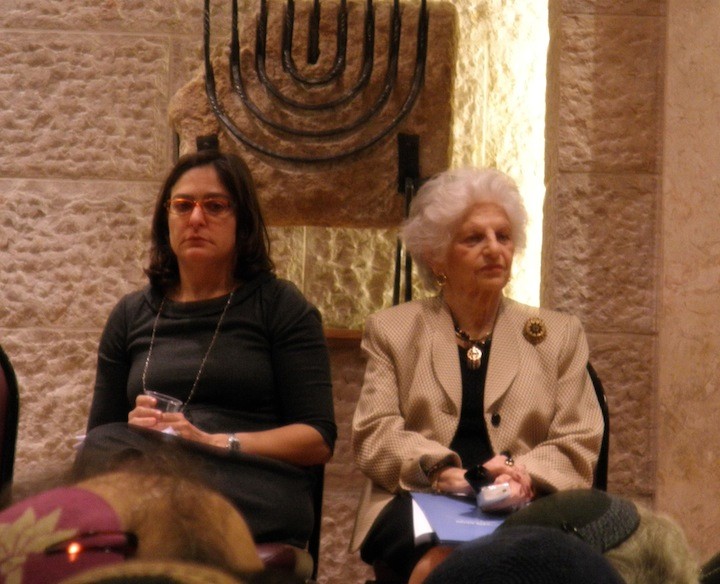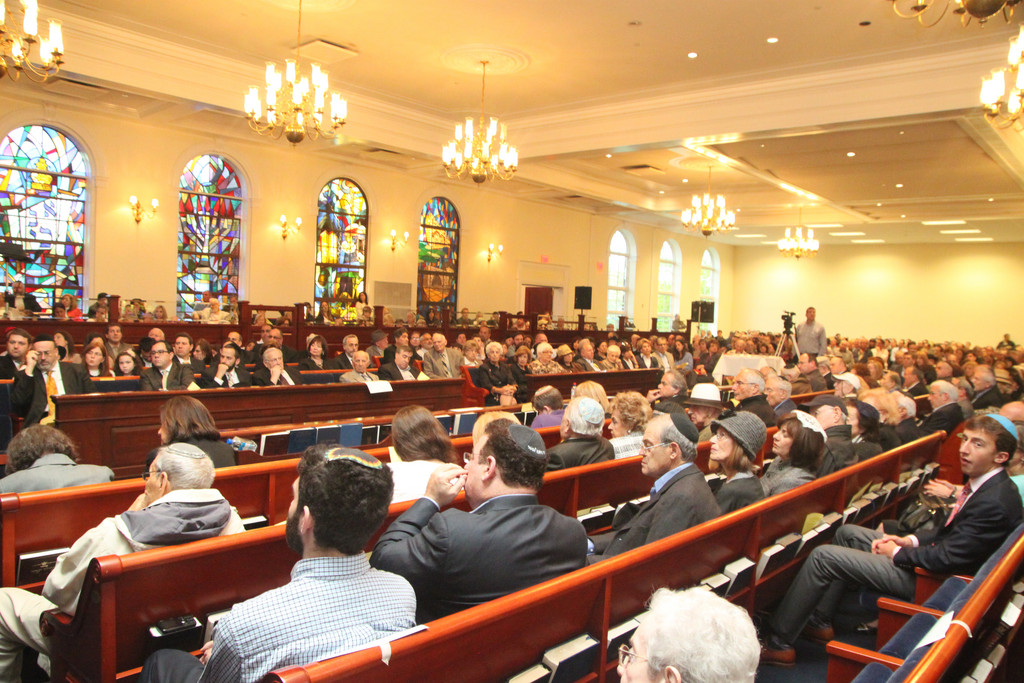Communities remember Shoah in word and action
For most holocaust survivors, the memories of the war were not about fighting or combat, but of degradation, enslavement, and death all around. Their stories revolve on the theme of survival under the eyes and gun sights of Nazi officers. For their succeeding generation, the image of helpless Jews inspired their own efforts to prevent another holocaust.
“We light candles, we reflect, and we never forget. I became an orphan at age 17, when the Angel of Death put his hands on my 15-year-old sister. My mother was shoved in the other direction,” said Forest Hills resident Eva Lux Braun. “Her last words to me were to stay together.” The so-called angel was Josef Mengele, the Nazi doctor who chose between those slated for slave labor and those bound for the gas chambers.
And so she kept close to her sister Vera through their ordeal at Auschwitz. Growing up in suburban Chicago with stories of the holocaust, writer Caroline Glick was inspired to defend Israel and made aliyah after graduating from Columbia University in 1991. “I think that all Jews are survivors of the holocaust. The Shoah only ended when the allies won,” Glick said.
The existence of Auschwitz was known to the allied powers through aerial images and reports from escapees, but requests to bomb the death were denied by President Franklin D. Roosevelt, and Glick argued that this was indifference at best and anti-Semitism at worst. “Why didn’t they bomb the railroad tracks? It was not in their interests. In most European nations, the people did not have a problem collaborating,” Glick said.
As survivors emerged from the death camps, many looked to a future Jewish state, while others looked to the nascent United Nations organization to offer protection against future genocide attempts. “The survivors came with many different conclusions,” Glick said. “The concept of the UN, the convention against genocide, the Universal Declaration of Human Rights, the idea that the law will protect us and force the Roosevelts and Churchills of tomorrow to follow human rights.”

 61.0°,
Light Rain
61.0°,
Light Rain 







